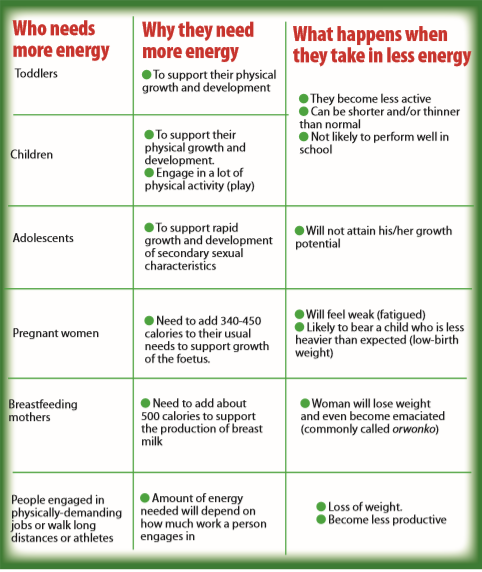Calories: The energy that drives you
Calories are nothing, but a unit used to measure energy. Since we derive energy from the food we eat, calories equate to the amount of energy transferred from food into our bodies.
HEALTH | CALORIES
People are counting and cutting back on them and you would be hard-pressed to find something at the supermarket that does not list its calories on the package. But do you know what calories are?
Calories! When you hear the word ‘calories', what comes to your mind? For most people, calories stir bad feelings.
Often, the word ‘calories' is likened to ‘gaining unwanted weight'. But this should not always be the case.
Calories are nothing, but a unit used to measure energy. Since we derive energy from the food we eat, calories equate to the amount of energy transferred from food into our bodies.
We all need a certain amount of calories to breathe, move, eat and excrete urine and faeces.
This means calories are essential for our survival. But calories can also threaten our survival when we continuously have an excess of what our bodies need.
Any extra energy we take in or any unused energy will lead to undesirable weight gain.
How many calories do I need?
Each individual has her/his own calorie needs. Our individual energy needs depend on our body weight, body structure, physical activity, life stage, health status and other factors such as weather.
In most societies, men are assumed to need more energy than women, but this is not always true.
For example, the energy needs of a 30-year-old sedentary man, such as an office worker, may be the same as those of a 12-year-old girl because she is more active and needs more calories to grow well.
A healthy person (young or old) uses much of the energy from food to support normal body functions, such as breathing, heart function and wear and tear.
If one consumes 2,000 calories, about 50-65% of these calories will be used for normal functions, 5% to 10% used to restore the body's temperature after eating and the remaining 25% to 50% for voluntary physical activity.
Heavier individuals need more calories than their thinner counterparts of the same sex.
Taller people also need more calories because a lot of energy is lost in form of heat from their large surface area.
Generally, we do not have direct control over the energy we use for normal body functions and the energy used to restore normal temperature after eating.
What we have control over is the energy used for physical activity. Those who want to gain weight can conserve energy by not engaging or limiting physical activity, whereas those who want to lose weight can expend more energy by increasing physical activity.
Foods to eat to manage weight
There is no single food that has the magic to enable one lose, gain or maintain weight.
To live a healthier life, we need to obtain calories from a diverse diet because our bodies cannot extract the energy from food without the help of vitamins, minerals and protein.
We need to include foods from all major food groups, namely; grains, cereals, starchy roots, tubers, meats, eggs, milk products, fats, oils, sweets, as well as fruits and vegetables. Yes, fats, oils and sweets are also needed to boost our energy intake, but this should be done in moderation.
The amount of energy we ‘take in' depends on the types and amounts of food we eat. Each individual food or beverage has some calories.
The only food items known to have no calories are pure water and some zero-calorie processed foods and beverages.
Vitamin supplements, diet shakes and weight loss fruit, as well as vegetable shakes are only temporary weight management solutions.
Actually, some of these products can impair one's health. The amount of calories in a food item depends on how much fat, protein, carbohydrate and alcohol is contained in it. Fat and alcohol are the biggest contributors to calories.
Highly-refined carbohydrate-rich foods such as maize and rice also have more calories than less refined or fresh foods.
For example, number 1 posho has more calories than number 2 posho because number 2 posho has less carbohydrate since it also has the bran.
Much of the number 1 posho will be absorbed by the body and yield energy for your body, whereas the bran and some of the number 2 posho will not be absorbed and thus will not contribute any energy to the body.
The amount of calories in a food also depends on how it was processed and how it has been prepared. Generally, dried foods have more calories than their fresh forms.
For example, more calories are obtained from cassava roots than from cassava flour of the same quantity.
The same is true for dried fruit compared to the same type of fresh fruit. Therefore, a person who is dieting and chooses to snack on a packet of dried fruit may be getting more calories than a person that chooses to have a meal of a piece of sweet potato and beans.
As an individual, it is your responsibility to ensure that you eat what is adequate for you.
This means not eating too much or too little. The first step to monitoring your caloric intake is to consult your nutritionist or dietitian for your specific caloric needs.

The writer works at the Department of Food Technology and Nutrition, College of Agricultural and Environmental Sciences, Makerere University.
The story was first published on April 29, 2013